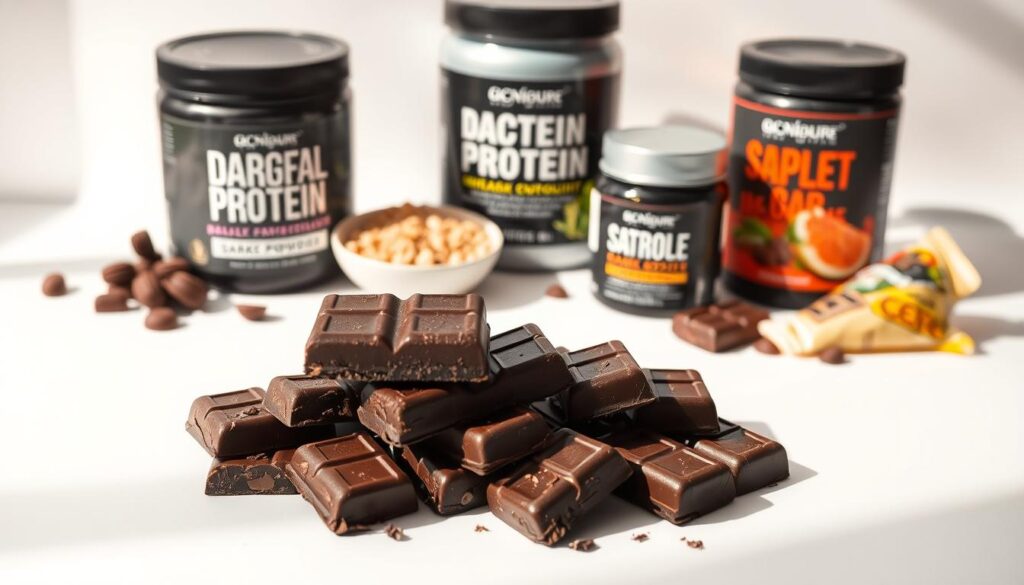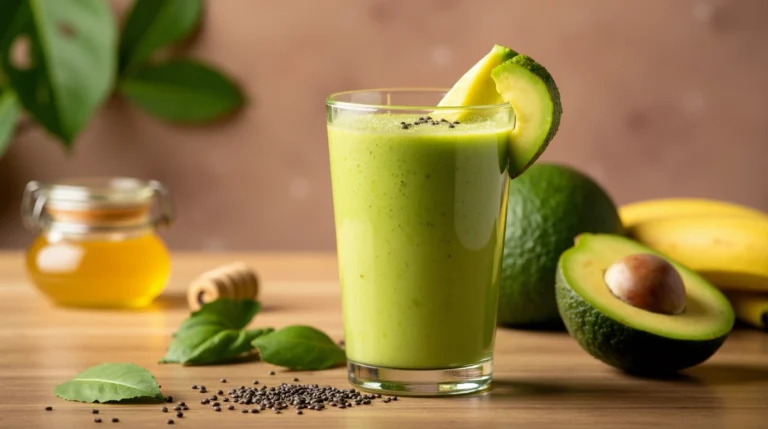The Dark Chocolate Advantage: How Dark Chocolate Enhances Athletic Performance
Every athlete knows the relentless pursuit of peak performance requires more than just training. What if your secret weapon was hiding in plain sight? Dark chocolate isn’t just a guilty pleasure—it’s a nutritional powerhouse that can transform your athletic potential.
Packed with potent antioxidants, dark chocolate offers athletes a natural edge that goes beyond traditional sports nutrition. Research reveals that this rich, complex food can enhance endurance, support muscle recovery, and sharpen mental focus in ways you never imagined.
From professional runners to weekend warriors, athletes are discovering that dark chocolate is more than a treat—it’s a strategic performance enhancer. Its unique blend of nutrients works synergistically to support your body’s most demanding physical challenges.
Table of Contents
Understanding the Power of Dark Chocolate in Athletic Performance
Dark chocolate is more than a tasty treat. It’s a nutritional powerhouse for athletes looking to boost their performance. Unlike regular chocolate, it’s packed with nutrients from high-quality cocoa beans.
The secret of dark chocolate is its unique mix. It’s full of flavanols from cacao, which can greatly improve your athletic skills. Let’s dive into why this food is so great for those who push their limits.
What Sets Dark Chocolate Apart
Dark chocolate stands out for several reasons:
- It has more cocoa (70% or more)
- It has less sugar than milk chocolate
- It’s a rich source of essential nutrients
- It’s loaded with antioxidant flavanols
Scientific Performance Benefits
Studies show dark chocolate can really help athletes perform better. A study on 46 male amateur runners found some amazing results:
- They could exercise for 2.16% longer
- Their VO2max improved by 2.31%
- Their anaerobic threshold went up by 6.91%
- They saw better blood pressure numbers
Key Nutrients for Athletes
Dark chocolate gives athletes the nutrients they need:
- Magnesium: Helps muscles work and recover
- Iron: Boosts oxygen in the blood
- Zinc: Supports protein making and immune health
- Flavanols: Improve blood flow and oxygen to muscles
Adding dark chocolate to your diet can be a natural way to enhance your performance. It helps with both physical and mental aspects of being an athlete.
Essential Nutrients in Premium Dark Chocolate
Athletes looking to boost their nutrition should think about premium chocolate. It’s not just tasty—it’s full of nutrients that help you perform better. Bittersweet dark chocolate is a key player in your fitness journey.
High-quality dark chocolate is packed with good stuff. It has at least 70% cocoa. This means it’s loaded with nutrients that athletes need:
- Magnesium: Helps muscles work well and reduces stress
- Iron: Important for carrying oxygen and making energy
- Zinc: Boosts the immune system and helps muscles heal
- Flavonoids: Antioxidants that fight inflammation
Dark chocolate’s special mix offers great benefits. Its antioxidants fight off damage from exercise. Flavonoids in bittersweet chocolate can improve blood flow, potentially enhancing your athletic performance.
Choosing premium chocolate means you’re getting a natural boost. It helps your body recover and perform better. Eating it regularly can also help control blood sugar, reduce inflammation, and give you energy for your workouts.
How Flavanols Enhance Athletic Endurance
Dark chocolate is more than a tasty treat; it’s a boost for athletes. Its flavanol content can greatly enhance your exercise abilities.
Flavanols are strong antioxidants that boost your athletic performance. They start a reaction in your body. This reaction can change how well you exercise and how long you can keep going.
Nitric Oxide Production and Blood Flow
Eating dark chocolate boosts nitric oxide production. This is good for several reasons:
- Dilates blood vessels
- Improves overall circulation
- Reduces exercise-induced stress
Oxygen Delivery to Muscles
Better blood flow means your muscles get more oxygen during hard workouts. Studies show that cocoa flavanols increase nitric oxide. This helps blood flow better.
“Cocoa flavanols help improve endothelial function, contributing to healthy blood pressure and cardiovascular performance.” – Sports Nutrition Research Institute
Impact on Exercise Duration
Athletes who eat 400-600 milligrams of cocoa flavanols daily see big improvements. These include:
- Increased distance covered
- Higher average power output
- Decreased perceived exertion
Adding dark chocolate to your diet can help you reach new heights in your athletic performance.
Dark Chocolate’s Role in Mental Focus and Recovery

Athletes looking for a natural brain boost are finding dark chocolate helpful. It’s not just tasty; it’s also a tool for better mental performance and recovery.
Dark chocolate with lots of cacao offers big mental benefits. Studies show it can make you more focused and accurate when faced with tough tasks.
- Increases mental alertness
- Supports sustained concentration
- Enhances mood stability
Antioxidants in dark chocolate are key for brain health. A Harvard study found that chocolate rich in flavonoids can boost working memory by 30%. This is great for athletes needing sharp minds.
“Dark chocolate isn’t just a treat – it’s a cognitive performance enhancer for serious athletes.” – Sports Nutrition Research Institute
| Chocolate Type | Polyphenol Content | Cognitive Impact |
|---|---|---|
| High-Polyphenol Chocolate | 635 mg per 25g | Maintained High Accuracy |
| Low-Polyphenol Chocolate | 211.7 mg per 25g | Decreased Concentration |
Experts say eating 30-60 grams of dark chocolate daily is best for your brain. Chocolate with 85-95% cocoa is the most effective for athletes wanting an edge.
Optimal Timing: When to Consume Dark Chocolate for Maximum Benefits
Athletes looking to improve their performance can add gourmet chocolate to their diet. Dark chocolate has nutrients that support training goals when eaten at the right time.
Timing your dark chocolate can greatly affect your athletic performance and recovery. Knowing when and how to eat this superfood can enhance its benefits.
Pre-Workout Consumption Guidelines
Eating dark chocolate 20-60 minutes before working out has several benefits:
- It gives a mild energy boost
- Increases mental alertness
- Improves blood flow to muscles
- Offers essential carbs for quick energy
During Exercise Considerations
During long workouts, small amounts of dark chocolate can keep energy levels up. Its natural caffeine and theobromine offer a gentle boost without overwhelming you.
Post-Workout Recovery Benefits
After hard workouts, dark chocolate is a key recovery tool. Its nutrients help restore muscles:
- Replenishes glycogen stores
- Reduces inflammation from exercise
- Provides magnesium for muscle relaxation
- Boosts mood with serotonin release
Pro tip: Choose gourmet chocolate with at least 70% cocoa content to maximize nutritional benefits and minimize sugar intake.
Choosing the Right Dark Chocolate for Athletic Performance
Not all dark chocolates are the same for athletes. The right premium chocolate can greatly improve your training and recovery.
When looking for the best chocolate for athletes, keep these points in mind:
- Choose dark chocolate with at least 70% cocoa for the most nutrients.
- Opt for chocolate with minimal processing to keep nutrients intact.
- Look for organic and fair-trade certifications.
- Go for chocolate with low sugar content.
The quality of dark chocolate affects its benefits for athletes. High-quality artisanal chocolate often has more benefits than mass-produced chocolate. Check the cocoa percentage and origin of the chocolate.
When picking your chocolate, consider these nutritional aspects:
- Flavonoid concentration
- Magnesium levels
- Antioxidant profile
- Minimal additives
Athletes should aim for dark chocolate with 70-100% cocoa content. This range offers the most benefits while keeping sugars and additives low.
Remember: Quality trumps quantity when selecting dark chocolate for athletic performance.
Try different artisanal chocolate brands to find the best one for your goals and taste. Your perfect chocolate is waiting for you!
Antioxidant Properties and Muscle Recovery
Athletes looking to improve their performance can use dark chocolate’s antioxidants. These help with muscle recovery and lower stress from exercise. Dark chocolate is a great addition to your post-workout diet.
Fighting Exercise-Induced Oxidative Stress
Hard workouts create free radicals that harm muscles. Dark chocolate’s antioxidants fight this damage. Studies show it can lower muscle injury signs after exercise.
- Neutralizes harmful free radicals
- Protects muscle cells from damage
- Supports cellular recovery processes
Inflammation Reduction Benefits
Cocoa beans have special compounds that reduce inflammation after exercise. A study found athletes who ate dark chocolate had lower inflammation than those who didn’t.
Recovery Time Optimization
Adding dark chocolate to your recovery diet can help muscles heal faster. This means less time off between workouts. The antioxidants in dark chocolate:
- Speed up muscle tissue repair
- Reduce muscle soreness
- Support overall athletic recovery
Pro tip: Choose dark chocolate with at least 70% cocoa content to maximize antioxidant benefits and support your athletic performance.
Creative Ways to Incorporate Dark Chocolate into Your Training Diet

Athletes can turn gourmet chocolate into a key part of their diet. Dark chocolate is not just tasty; it’s packed with nutrients that boost performance. It can make your training better.
Here are some cool ways to add fair trade chocolate to your diet:
- Energy Balls: Mix dark chocolate (70% cocoa or higher) with nuts, seeds, and dried fruits for a pre-workout snack full of nutrients
- Smoothie Boosters: Add chopped dark chocolate to protein smoothies for antioxidants and flavor
- Custom Trail Mixes: Make mixes with dark chocolate, almonds, and dried berries for a performance boost
Using chocolate wisely can help athletes a lot. Eating one ounce of dark chocolate 30-60 minutes before working out can give a gentle energy boost. It also gives important minerals like magnesium and iron.
| Chocolate Type | Cocoa Content | Performance Benefits |
|---|---|---|
| Dark Chocolate | 70-100% | Enhanced endurance, reduced muscle soreness |
| Fair Trade Dark Chocolate | 85% | Higher flavanol content, ethical sourcing |
But remember, too much is not good. Eating one ounce a day is enough to get benefits without too many calories. Try different types of gourmet chocolate to see what’s best for you.
Performance-Enhancing Compounds in Artisanal Chocolate
Artisanal chocolate is a top choice for getting the most out of cacao’s performance-boosting compounds. Unlike regular chocolate, makers of artisanal chocolate keep the natural nutrients that help athletes perform better.
The way artisanal chocolate is made means it has more flavanols. These compounds are key for better athletic performance. They help in several ways:
- Enhanced blood flow to muscles
- Improved oxygen delivery
- Increased endurance capabilities
- Natural energy production
When picking artisanal chocolate for performance, choose ones with at least 70% cocoa. These chocolates have more minerals like magnesium, iron, and copper. These are important for athletes aiming for the best performance.
Research from Kingston University shows dark chocolate can greatly improve endurance. The bean-to-bar method in making artisanal chocolate keeps these compounds intact. This makes it a natural supplement for athletes.
The careful crafting of artisanal chocolate transforms it from a simple treat to a strategic nutritional tool for athletes.
Natural stimulants like caffeine and theobromine in artisanal chocolate also give athletes an edge. They help with mental focus and physical ability. By choosing high-quality, minimally processed chocolate, you get a powerful nutritional boost for your athletic goals.
The Science-Backed Benefits of Cacao for Athletes
Research shows cacao is a bittersweet superfood for athletes. It has about 13.9 mg of iron per 100g. This supports important metabolic functions for athletes.
Cacao’s nutritional profile is impressive. It has potassium and antioxidants that beat blueberries and acai berries. These nutrients help athletes a lot.
Athletes can recover faster and feel less inflammation by eating cacao. Theobromine in cacao boosts mood and energy. It also helps with thinking clearly.
The high potassium (1520 mg per 100g) in cacao is great for nerves and muscles. This makes it a great addition to an athlete’s diet.
But, remember to eat cacao in moderation. Cacao powder is better than processed cocoa for natural nutrients. It has less caffeine than coffee, making it good for athletes.
Choose high-quality cacao sources. Not all products are the same. Adding cacao to your diet can support your athletic goals in a tasty way.








One Comment
Comments are closed.